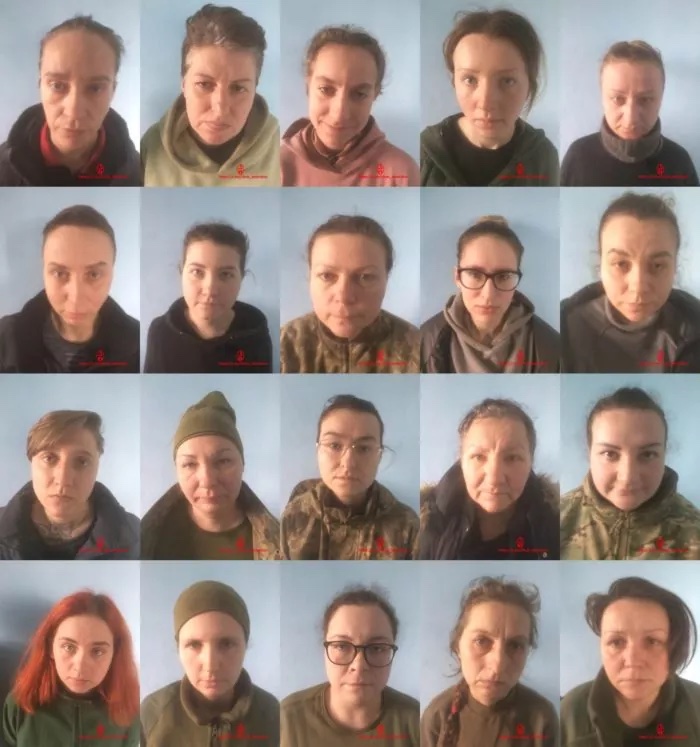Some stories of captivity are too horrifying to disclose, says Andrii Kryvtsov, whose relative is among the Ukrainian captives. He tells of the harsh conditions, psychological torture such as sleep deprivation, taking DNA samples by force and why the world needs to be reminded of such crimes violating all international treaties.
In addition to the Defenders of Azovstal, Russian forces captured the entire staff of the 555th Military Hospital - doctors, nurses, dozens of wounded civilians, drivers and transport personnel, as well as medics from units of the National Guard, the 36th Marine Brigade, civilian doctors - in total, hundreds of Ukrainian citizens. No one can give the exact number.
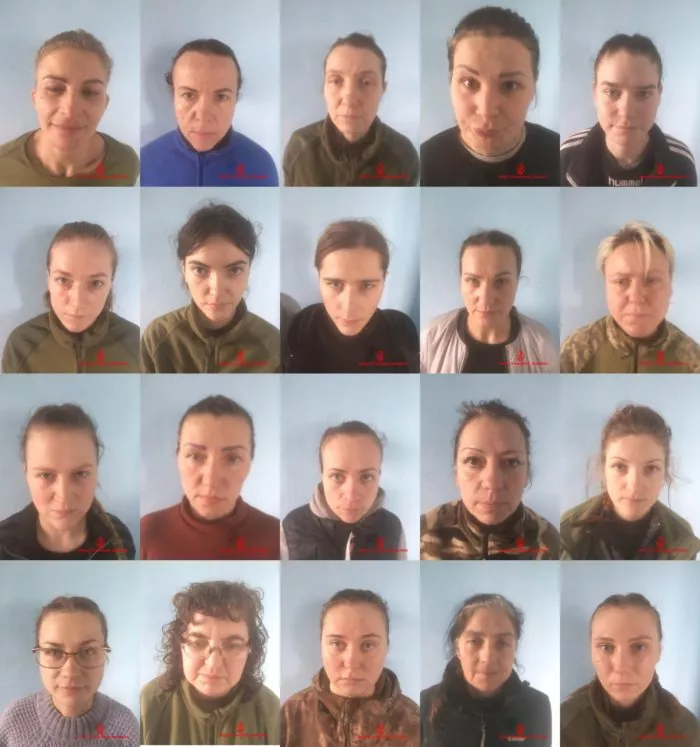
Medics, nurses and other medical personnel of the 555th Military Hospital in Mariupol, who worked non-stop for two months under shelling and missile strikes, performing surgery and complicated interventions in helmets and flak jackets, have been in Russian captivity for over 100 days. All this time, their relatives have had no news regarding their health or whereabouts. Among them are many women, and their nameless photos, similar to mug shots, were recently published on a Russian Telegram channel.
“More than 100 days… 100 days of terror and darkness. 100 days without a single glimpse of the sun.
Look closely at all these faces. 80 photos… 80 families in different regions of Ukraine have lost their mothers, daughters, wives, sisters, who are now living in a place of darkness and horror. And why? Because one little man in Moscow decided that he could do better than the Nazis!
But, their captors didn’t even have the courage to provide the names of these women. Following the best tradition of their Nazi predecessors, they assigned them numbers - from 928 to 1008 - as was done in Buchenwald and Auschwitz.” writes Andrii Kryvtsov, a relative of captive Olena Kryvtsova, on Facebook.
Andrii reports that he managed to communicate with two doctors who were recently exchanged. For ethical reasons, he does not provide their names or professions. They told him that it all began on March 15, when Russian missiles struck
the Mariupol Military Hospital. All the medics, hospital staff, and the sick and wounded were evacuated to the bomb shelters at the Illich Metallurgical Factory and the Azovstal Steel Plant. Thus, the entire hospital staff was split into two groups.
Like other Mariupol civilians, the medics settled in for a long wait. Their area was defended by the 36th Admiral Belinsky Marine Brigade. Neither the medical nor the non-medical personnel knew how to carry or use a machine gun or pistol. According to international agreements and conventions, such persons are not combatants. They were unarmed and unable to defend themselves against the enemy. They remained in the shelters with the civilians and military, carrying out their medical duties and tending to the sick and wounded.
Sometime later, most of them were taken prisoner: on April 12, everyone who was at the Illich Factory, May 16 - those who were at Azovstal.
“When the 36th Brigade could no longer hold its position, we found ourselves in a very difficult situation. There was absolutely no way to get out; we were surrounded. Besides, there were many wounded in our shelter… That’s how we were captured,” says one of the liberated medics.
First, the Ukrainian prisoners were taken to the Russian-occupied village of Sartana, Donetsk Oblast, where they were confined to a hangar. There were no beds; the prisoners had to sit, stand and sleep on the concrete floor. The medic recalls that the days were very cold, and there was no glass in the windows; it rained almost every day. As a result, the prisoners were wet, shivering and with little sleep.
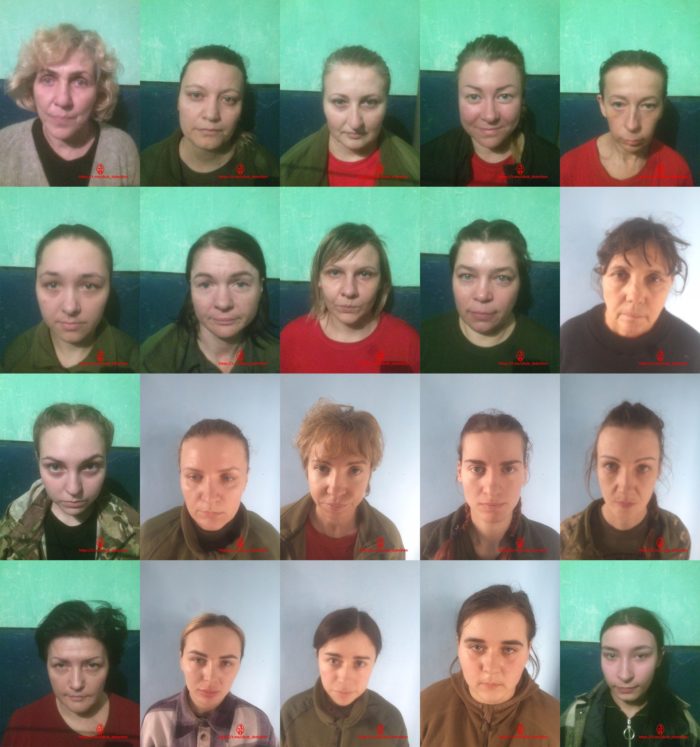
Two days later, they were transferred to occupied Olenivka, Donetsk Oblast, where their living conditions worsened. Thirteen prisoners were packed into a tiny cell designed for two. The toilet in their cell did not work properly, so they had to improvise as they were not allowed to leave their area. They were fed three times a day, more or less normal portions. They were given lots of bread, and this filled their empty stomachs.
The prisoners were provided approximately three litres of drinking water per day, but it was dirty and flavourless. The food was served in dirty dishes; it was clear that they had been used before. There were no showers or running water; the prisoners could not wash or attend to basic hygiene.
At night, the Russians turned the radio up very loud. The music echoed loudly throughout the building, preventing the prisoners from getting a wink of sleep.
After five days in Olenivka, the captives were loaded onto military vehicles and taken to Taganrog, Rostov Oblast, Russia. The driver told them that they would soon be exchanged.
“We really wanted to believe that this would happen. But, when we got to the Russian Federation, to Taganrog, I realized for myself that nothing would change. The horrible conditions that we’d lived through in the “DNR” were repeated here in Taganrog. The Russians treated us like animals,” the medic recalls.
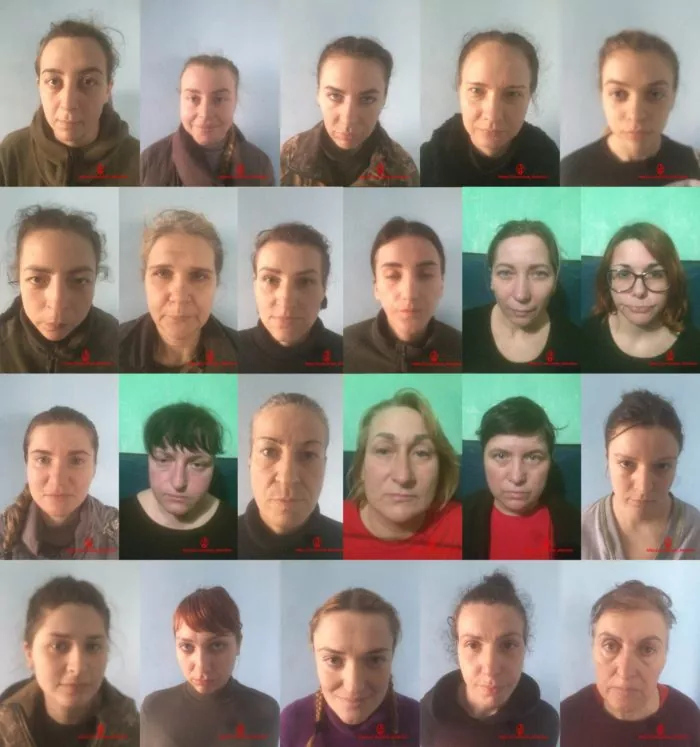
In Taganrog, the prisoners were ordered to strip naked. They were given new clothes, and all their personal belongings were confiscated. The Russians allowed them to take a very cold and quick shower, and then they collected DNA samples - a lock of hair, a piece of a nail, fingerprints, etc. This was repeated a few days later.
“The conditions were a bit better than in Olenivka. Each prisoner had a bed and the toilet worked… at least the one in my cell did. The first days were very cold, so they handed out old, used peacoats. We weren’t allowed to sit on the beds or on the benches. In fact, we were forced to stand, stay on our feet all day.”
The medical personnel were incarcerated in a Russian detention center, placed in cells with two to six people. They were fed three times a day, but the food was terrible and in insufficient quantities. Sometimes, only sour porridge was handed out for dinner. The prisoners were allowed to take a warm shower once a week. Each cell had a washstand, and the prisoners were given soap and basic hygiene products.
https://twitter.com/EuromaidanPress/status/1538242560115736577
The wake-up call was at 6:00 a.m.; lights out at 22:00. Sometimes, the guards forgot to switch off the lights or let the prisoners stay up longer, until 23:00 or even midnight. There were no walks in the fresh air; they were not allowed to go outside; they spent the days and nights within the four walls of their prison.
The prisoners were not allowed to call anyone or write letters. The Russians did not authorize representatives of the UN, OSCE, or the Red Cross to visit them. The women were regularly interrogated, threatened, and put under enormous psychological pressure.
During the interrogations, the Russians fed them lies and fake stories, attempting to demoralize them and break their spirit.
- Zelenskyy has declared that you are traitors.
- No one is waiting for you, and there will be no prisoner exchange.
- You’ll probably be thrown in jail or executed when you return to Ukraine.
- There’s almost no more Ukraine left, so it would be easier and more comfortable for you to wait here until Russia has consolidated its rule over the entire country.
- We’re ready to proceed with the exchange, but Ukraine is balking and slowing down the entire process.
The prisoners were forced to learn and sing the Russian anthem, study the Russian coat of arms and the flag of the Russian Federation, and recite the well-known, but shameful poem “Forgive us, dear fellow Russians” (“Простите нас родные россияне
”)...
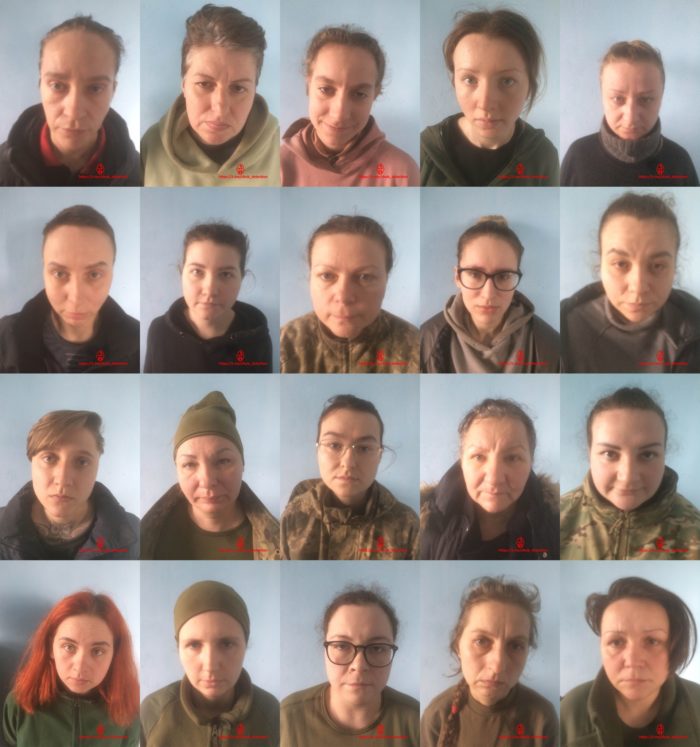
Andrii Kryvtsov notes that he spoke in detail with the liberated medics but decided to make it only a very small part of the interview public because the stories are either too horrifying to publish or closed to the public during the investigation.
The Ukrainian side has confirmed that these Ukrainian civilians were indeed captured. The relatives of the prisoners have now asked the National Information Bureau (NIB) to provide written statements confirming the women’s status as prisoners of war.
“We want to make this public, share it as widely as possible. First, we demand the release of our relatives. Second, we want the global community to understand who our enemy is. The Russians violate everything, all treaties, all the rules and regulations pertaining to war. For them, there is no such thing as human rights, and human life means nothing to them,” said Andrii Kryvtsov in a recent interview.
According to the Geneva Conventions, doctors, medical workers, journalists, kitchen personnel, and musicians are not considered combatants. They should be respected and protected under all circumstances.
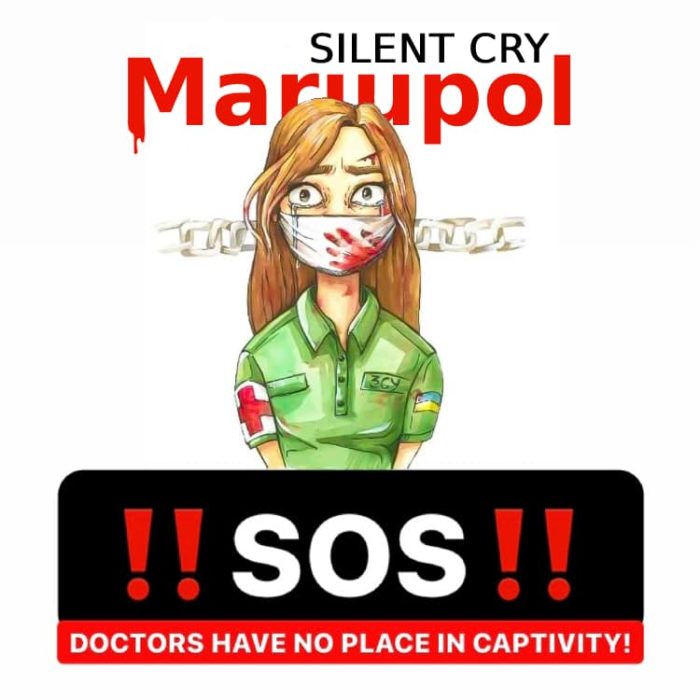
Read more:
- War diary: “Terrified of what He saw, God has left Mariupol, my neighbor said”
- Martyred city of Mariupol wiped out of existence by Russia’s incessant shelling
- “At first, I did not want to live.” Ukrainian nurse got married after Russian mine took her legs
- “Dearest daughter, it’s total Hell. Death is everywhere” – Ukrainian father on the frontline
- Escape from Mariupol. “I begged God to let me die quickly!”

